Why?
Mothers come to hypnobirthing for a more comfortable and natural birth.
If birth is more comfortable and natural and drug-free for you, then it’s also more comfortable, natural and drug-free for your baby.
And that’s just the start.
If a child enters the world gently and easily to be greeted by a mother who is also drug-free and calm this is how a baby forms its first relationship in this world.
Some even say it forms the blueprint for every other relationship for the rest of the child’s life and that in turn affects the people it meets too.
In addition, new research has recently been published using 4D videos to observe the behaviour of a foetus reacting to the mother’s anxiety and depression. It is now understood that the mother’s emotional state and levels of stress during pregnancy relate to early mother-infant interaction and child well-being (Source: Royal Society of Medicine).
How?
For the mother hypnobirthing lets a woman work with her body that is naturally designed to give birth.
Quite simply we’re reducing the fear and negative thoughts she has been ‘programmed’ with from an early age (especially the idea of pain) and replacing it with calm confidence and focus. Some mothers feel it makes giving birth the most empowering experience of their life.
Also, we’re looking to lower the production of stress hormones that can be passed to the baby. In effect, keep oxytocin levels higher. For the baby, hypnobirthing reduces the stress that can affect a baby in the womb and have an impact on their long-term development.
Hypnobirthing babies can be calmer and more settled. This feeling of calmness starts during the birth process and then after birth: improving sleeping and feeding.
What are we looking to do?
The biology is this.
The sympathetic nervous system is responsible for your “fight or flight” responses in times of emergencies. It controls the body’s responses to stress, injuries, or perceived threats.
Meanwhile the parasympathetic is the nervous system responsible for your “rest and digest” responses in times of non-emergencies. It controls the body’s responses at rest and helps your body regulate its normal daily organ functions.
They have opposite effects on the body.
The hormones of sympathetic system stimulate the adrenal glands. These are responsible for the reactions associated with stress.
For example, an increase in heart rate and breathing that turns into panting. This can cause stress for both the mother and baby.
A mother is likely to get a high level of these hormones if she doesn’t feel private, calm, and safe. This can inhibit oxytocin.
Oxytocin’s main function in labour is to bring on contractions. There’s a surge of oxytocin in the final stage to help with pushing. Also, oxytocin reduces stress, calms the mother down and helps with pain during labour. Oxytocin can also remain after birth, helping mothers feel more relaxed and bonded to their babies.
In other words, hypnobirthing is all about creating a feeling of calm in a mother’s body. Lowering the tension all round.
A little bit of background
Us humans have come to think of pain in labour as ‘unnatural’.
Pain in labour is relative. ‘Unnatural’ implies it is against nature. However, for most animals, it is not so painful and traumatic as it is for humans.
Because of our large brains, we are born with unusually large heads.
Also, our upright stance alters the shape of the pelvis and birth canal, meaning that the baby has to turn on its way out - most animals don't have this problem.
In addition animals do not advertise the fact that they are in pain by crying out during birth as humans do, since a new born animal is very vulnerable - as is a mother - and unable to run or defend herself. Crying out would alert predators to her presence and distress, making herself and her young a target.
It’s probably better to look at the levels of calm and peace that can be achieved for mothers– especially through hypnobirthing.
So what hypnobirthing is aiming to do is put a bit of calm back into the process.
Avoiding the negatives
Negative input can cause stress to the mother and baby. For example, language.
The mother must be aware of the power of the words she’ll hear and reduce their meaning.
Phrases such as “incompetent” cervix, “Anomaly scan”, “Failure to progress”, and “Labour has stalled” are not helpful. They add to the tension, slow the oxytocin and then the birth.
We can work on making sure you tell yourself the right things.
Mothers also need to be wary of talk of due dates. Giving birth is not a competition. The importance needs to be played down.
‘Late’ and ‘overdue’ are simply phrases. All apples don’t ripen on the same day. “Baby knows best” is the saying. All due date talk does is create pressure, producing less oxytocin and hindering labour.
For example, if your friends ask about the date this adds to the pressure, so tell everyone a fortnight later.
And who am I - a man - to tell you what to do?
I’m James Thomas a Cognitive Behavioural Hypnotherapist. I’ve used hypnosis thousands of times to deal with clients’ stresses, anxieties, drug addiction, alcohol abuse, PTSD, overeating, low self-esteem, eczema, and anger to name but a few.
Some of my most traumatised clients are those who have had bad birthing experiences and are left with depression, low self-esteem or the fear of having more children.
Hypnobirthing lets me help mothers to feel empowered; to have a calmer experience in childbirth.
Plus, I was a dad at the birth of my two daughters. I’ve been there when there’s a panic. Not good.
I cover all of Lincolnshire with my rooms in Louth and Lincoln. Feel free to get in touch.









